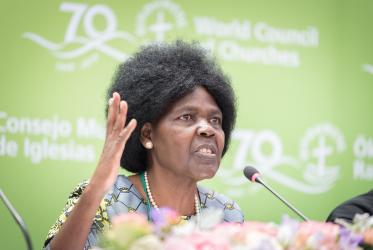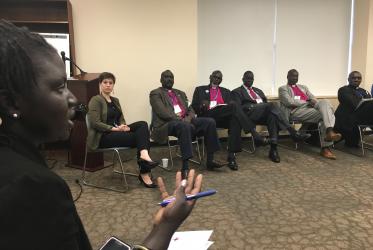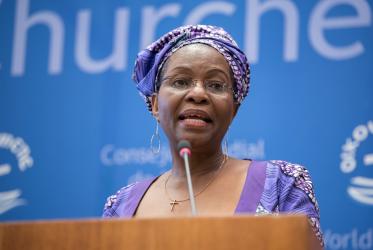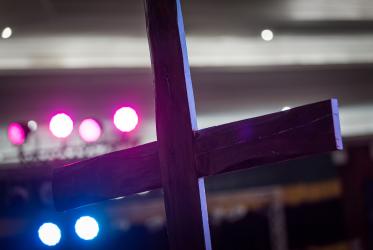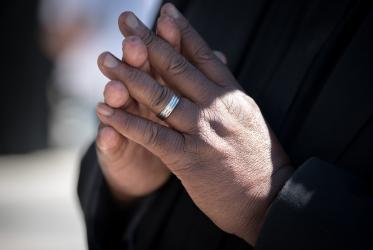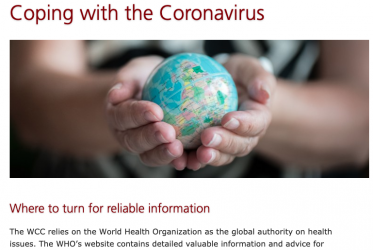Displaying 81 - 100 of 150
When you have nothing, you give your heart
09 May 2018
WCC “Pilgrim Team” to visit South Sudan
30 April 2018
WCC brings greetings to archbishop in South Sudan
24 April 2018
Call for day of prayer for South Sudan reinforces message of peace
20 February 2018
WCC encourages participation in day of prayer for South Sudan, DRC
16 February 2018
As South Sudan talks unfold, church leaders prioritise peace
14 February 2018
South Sudan church leaders offer Christmas season roadmap for hope
21 December 2017
In South Sudan, times are difficult but churches serve together
16 October 2017
New study lifts up voices of small farmers in Mozambique
24 August 2017
South Sudan Council of Churches: “the war must end!”
21 August 2017
